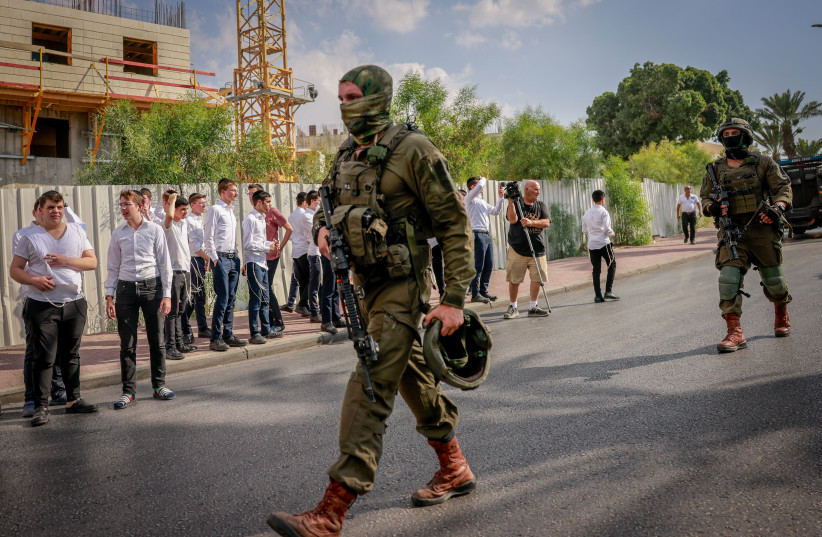The Shin Bet (Israel Security Agency) did not provide an explanation as to why the terrorist who wounded six Israelis in Ma’aleh Adumim on Tuesday escaped their system for potential terrorist detection, but the town’s deputy mayor, Guy Yifrach, announced the expulsion of all Palestinians with worker permits until further notice.
This raises the old questions about Palestinian worker permits, what degree of danger they pose to Israel’s security, and whether Israel’s permit policy should be more strict or more lenient.
Some posit that the number of permits given should be increased, because the more economically secure the Palestinians feel, the less likely they would be to commit acts of terrorism.
Others worry that all that it requires for an attack to occur is a few “bad apples,” that criteria for permits are too lenient, and the threat too great.
The debate over Palestinian workers' permits: Is it good or bad for security?
Although the debate has dragged on over the decades, it got particularly heated last March when a terrorism wave began that has continued to this day. At the time, the IDF pushed for more permits, and leniency in the conditions. The Shin Bet supported this case in theory, but did not want to weaken the criteria.

As of last April, there were reportedly around 120,000 Palestinians with permits for working within Israel, of which some 92,000 had places of employment.
Given that there are currently already between 210,000 and 220,000 West Bank Palestinians working for Israelis there and within Israel, along with some 18,000 Palestinians from Gaza, it seems that the IDF won at least part of the fight – more permits.
But the IDf did not get everything it wanted; there is still a minimum cut-off age of 27 for permits, because at that point, according to the Shin Bet, the risks of terrorism drop and the likelihood of wanting to support a family and achieve a stable life rise.
Yet some in the defense establishment would like the age lowered to 25. If this happens, it could substantially increase the number of permits. Others in the defense establishment would also, in certain circumstances, want to significantly increase the number of work permits for Gaza.
The stances of neither the IDF nor the Shin Bet on the permits issue will be addressed publicly, but the pressure is likely to rise on this issue now after the Ma’aleh Adumim attack.
In recent years, statistically speaking, the percentage of terrorist attacks from Palestinians with work permits has been close to zero.
Of the three million Palestinians living in the West Bank, around 66% are under the age of 29, according to a UN report. This means that a large and still-increasing number of young Palestinians could be and remain unemployed, putting them at a greater risk of turning to terrorism.
So if events such as the Ma’aleh Adumim attack freeze such a program, is it saving Israelis from a flawed program with standards that are too low? Or will freezing Palestinians out of jobs they thought they had have the opposite effect, driving some who had come to terms with coexistence with Israel, to terrorism?
Not that terrorists need a reason to kill Israelis, but there are different factors that play into a greater drive for violence. After an ongoing terrorist wave that hasn’t stopped for 18 months, the prospects of a great diplomatic solution or big security operation are dim.
One of the best ways Israel may be able to regain some control of the situation is to thread the needle of the workers program – maximizing economic benefits for Palestinians, while learning the lessons needed to keep terrorists off the list.
